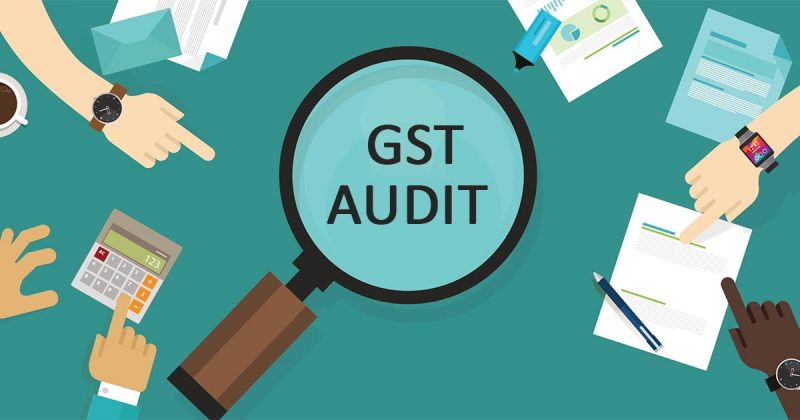AUDIT under GST
Audit is the examination or inspection of various books of accounts by an auditor followed by physical checking of inventory to make sure that all departments are following documented system of recording transactions.
The purpose of Audit under GST is to verify the correctness of turnover declared, taxes paid, refund claimed and input tax credit availed, and to assess the compliance with the provisions of GST.
Audit by Taxable Person
As per Section 35(5) of CGST Act, every registered dealer whose turnover during Financial Year exceeds Rs 2 crores has to get his accounts audited by a Chartered Accountant or Cost Accountant.
He shall electronically file:
1.Annual return in Form GSTR9 by 31st December of next financial year (31st March 2019 for FY 2017-18)
2.Audited copy of annual accounts
3.Certified Reconciliation Statement in form GSTR-9C
4.Any other particulars as prescribe
Audit by GST Tax Authorities
General Audit (Sec.65)
- The Commissioner of CGST/SGST (or any officer authorized by him) by way of a
general or specific order, may conduct an audit of any registered person for
such period, at such frequency and in such manner as may be prescribed. - A notice will be sent to the auditee at least 15 days before in Form GST ADT-01
- The audit will be completed within 3 months from the date of commencement of the audit.
- The Commissioner can extend the audit period for a further six months with reasons recorded in writing.
Obligations of the Auditee:
The taxable person whose accounts are being audited will be required to:
1.Provide the necessary facility to verify the books of accounts/other documents as required
2.To give information and assistance for timely completion of Audit
Findings of Audit:
On Conclusion of an audit, the officer will inform the taxable person, whose records are audited, about:
1. The findings,
2. Their reasons, and
3. The taxable person’s rights and obligations during the audit in Form GST ADT-02 within 30 days of conclusion of the audit.
4. If the audit results in detection of unpaid/short paid tax or wrong refund or wrong input tax credit availed, then demand and recovery actions will be initiated under section 73 or 74.
Special Audit (Sec.66)
When can Special Audit be initiated?
The Assistant Commissioner may initiate the special audit, considering the nature and complexity of the case and interest of revenue. If he is of the opinion during any stage of scrutiny/inquiry/investigation that the value has not been correctly declared or wrong credit has been availed then special audit can be initiated in FormGST ADT-03.
Who will order and conduct a Special Audit ?
The Assistant Commissioner (with prior approval of the Commissioner) can order for Special Audit (in writing). The special audit will be carried out by a Chartered Accountant or a Cost Accountant nominated by the Commissioner.
Time limit for Special Audit
The auditor appointed will have to submit the report to Assistant Commissioner in Form GST ADT-04 within 90 days. This may be further extended by the tax officer for 90 days on an application made by the taxable person or the auditor.
Findings of Special Audit
The taxable person will be given an opportunity of being heard in findings of the special audit
If the audit results in detection of unpaid/short paid tax or wrong refund or input tax credit wrongly availed then demand and recovery actions will be initiated under section 73 or 74.
Management’s Responsibility towards Audit
The management is responsible for the following in relation to GST Audit:
1. Compliances with the GST laws, comprising of CGST/SGST/UTGST/IGST acts and rules made thereunder.
2. Maintenance of adequate accounting records and internal controls for preventing fraud or other irregularities.
3. Providing of written representations as requested by the GST auditor concerning representations made to him in connection with the audit.
4. GST auditor’s responsibility is to audit the particulars included in the GSTR 9C to ensure that they are free of any material mis-statement.
5. GST auditor will consider the entity’s internal control for the purpose of planning of audit procedures.
6. The working papers prepared in conjunction with the audits are/is confidential information of the enterprise and will not be disclosed by him to
any third party, except in certain cases, without the consent of the auditee.
7. The auditor must report any tax liability identified through the reconciliation exercise of GST audit and he may or may not certify the form GSTR 9C

